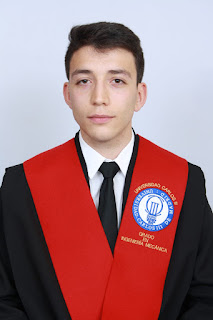About a year ago, I participated in the EXTREEMS-QED program
at GMU. EXTREEMS is an NSF funded math summer research program where I was
paired with a faculty mentor in the math department and I worked on a project
with them for the summer. I’ve been lucky enough to be able to continue the
project I started that summer until now with support from OSCAR. I’ve been
working with Dr. Tyrus Berry doing research on supervised dimensionality
reduction. In essence, finding ways to take high dimensionality data and crunch
it down to a smaller dimension while retaining information about features we
want to analyze.
Machine
learning has been an interesting topic to me for a long time. The linear
algebra course I took at mason has been one of my favorite classes I took here,
and that class is the core area I work in with my research. Along with that,
I’ve always found it fascinating to try and make computers learn. When
programming a computer to make choices, the systems always learn in strange and
distinctive ways that are nothing like how we could ever intend them to learn.
With that background, I was hooked once I talked with Dr. Berry about potential
research projects.
With the
amount of time I’ve spent on this project, my typical day-to-day work has
changed considerably over time. Right now, I spend a lot of my time working on
developing the theoretical reasoning behind the algorithm we’ve developed as
part of the research as well as running tests to verify the results I’ve
gotten. Along with that, I’ve been working on writing our results up to be
published. That writing has been a great opportunity to really explore the
ideas and concepts I’ve been working with from an outsider perspective as I’ve
worked to actually write out what I’ve been working on in an understandable
way. In the future, I want to apply what I’ve learned in my research to a
postgraduate math program and continue to work in this field.


